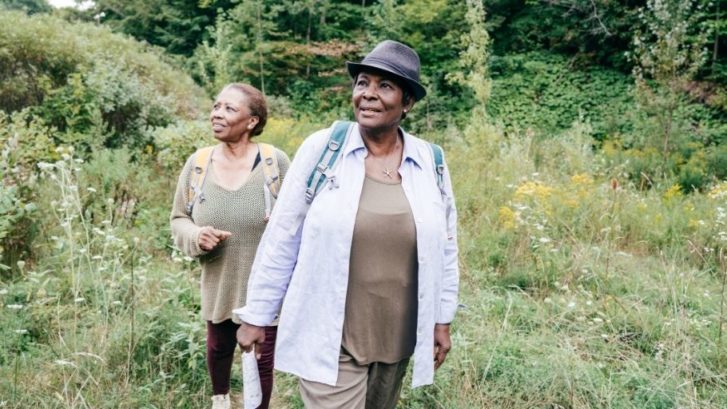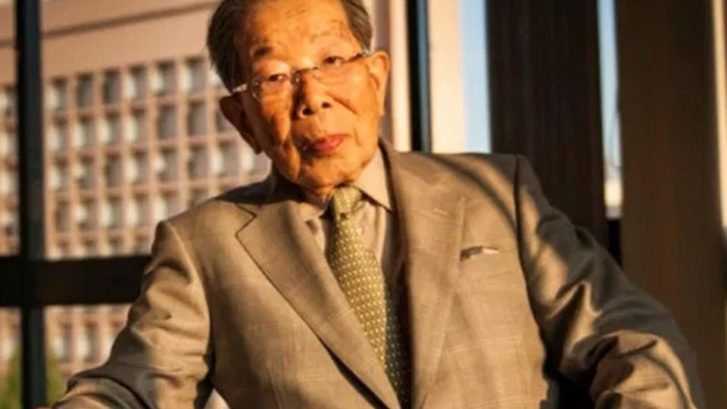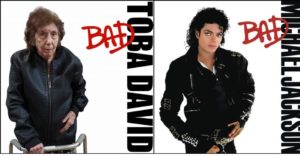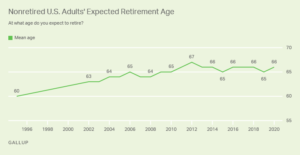Some choose retirement, and some have retirement thrust upon them. When it comes to figuring what to do with the decades of free time facing modern retirees, why not take an inventory of what you find most important, whether it be leisure, socializing, contributing to a community or cause, or pursuing hobbies. Work also may be the most important thing, either for the income or for the sense of identity. Research shows that more than half of people over 60 say they will work after retirement.
Here are some ideas for retirees deciding what to do with their days.
Work as a Consultant
People with skills and knowledge to sell to individuals or companies can become consultants, a job with plenty of flexibility for free time. Consulting requires the ability to market and sell those skills, and it can take a while to build up a clientele.
‘Boomerang’ to Part-Time Work
Some companies are finding that, by hiring back retirees part-time or as needed, they get the expertise of long-time workers, while the former full-timers get to keep up professional skills and develop new ones. It’s best to plan this — sometimes called “boomeranging” — before retirement, but it’s never too late to look.
Start a Mastermind Group
For some, retirement from a day-to-day job just opens up time to try another business. Senior entrepreneurs don’t need to go it alone. Look through your address book, find other smart retirees, and form a mastermind group that meets regularly to share connections, advice, and experience. It’s like having an instant board of directors, while joining a bunch of other boards.
Work at a Non-profit
Many retirees seek to turn work experience into a second career at a non-profit. Organisations tap into people’s desire to find meaningful work that gives back to the community. They partner with groups all over the country, serving as a placement network for “second acts.”
https://en.wikipedia.org/wiki/Category:Non-profit_organisations_based_in_South_Africa
Work in a School
Public and private schools have opportunities even for people without teaching degrees. Teacher’s assistants, tutors, and crossing guards are all needed at schools and don’t require experience as an educator.
Become a Tour Guide
People with outgoing personalities can become tour guides. It’s not necessarily easy. Becoming a licensed guide means passing a background check as well as a rigorous test of arcane knowledge specific to the relevant industry. Although no one will become rich as a guide, some people can have a pretty good time and make money passing on their excitement about where they live.
Work at a Hobby
Work isn’t work if you love to do it, which some retirees discover by turning a lifelong passion into a paying proposition (easier when it’s not the sole source of income). A retiree loved restoring antiques in his garage as a hobby, and now he has a partner who helps him turn old barn doors into shelving and coffee tables for sale. A love of gardening could lead to a job in a plant nursery; a love for animals could translate into a reception job at a vet’s office.
Travel in a caravan
Freewheeling seniors can take advantage of a loose schedule by touring the country in a caravan. Whether to buy or rent depends on whether this is going to become a lifestyle or just a one-time caravanning holiday. Having a built-in kitchen and bed can save on meals and hotels during long-term travels.
Visit National Parks
South African National Parks (Sanparks) offer discounts on normal tariffs to people 60 years and older provided the reservation is made in the name of the qualifying person. Social pensioners are those receiving old age, family and disability allowances as well as blind persons.
https://www.sanparks.org/
Take Advantage of SAARP Benefits
One of the greatest advantages of retirement is the ability to go traveling at the drop of a hat (or the sighting of a great deal), with no work or school schedules to get in the way. SAARP offers discounts to make your holidays much more affordable.
https://saarp.net/
Go to Camp
Another way to get away from it all is to go to camp — a camp meant for seniors. Some concentrate on basic camp experiences, such as archery, boating, and campfires, while others focus on particular activities such as wine tasting, bird watching, or the arts. Some are adults-only, and some offer shared experiences with grandchildren. Adult camps aren’t necessarily in the summer, and some last for only a weekend, including some pricey fantasy camps that indulge the inner child and let grownups be cowboys or train for spaceflight.
Become a Road Scholar
Educational travel adventure tours that let grandparents bring grandchildren along, is also popular amongst the over 50’s. The tours encourage learning and interacting with people wherever members go, not just sightseeing. Some trips to remote locations involve hiking, canoeing, or a lot of walking and climbing, which are indicated so people with limited mobility can assess whether a trip will be appropriate.
https://www.tourradar.com/pa/seniors-d-south-africa
Take Advantage of Rail Discounts
Luxury takes on a new dimension with The Blue Train or Rovos rail. You’ll feel it the moment you step into the pre-departure lounges in Pretoria or Cape Town. A warm-hearted South African welcome – taking guests through some of the most breath-taking countryside to be found anywhere in the world.
https://www.luxurytrains.co.za/
Teach ESL Abroad
One way to experience another country without having to shell out for so many travel expenses: Get certified to teach English as a second language. Demand for ESL teachers is high.
https://www.lifefromabag.com/guide-to-teaching-english-abroad/
Teach ESL at Home
There are also plenty of people in this country who need to learn English as a second language. Tutors work with them one-to-one on reading, writing, speaking, and sometimes on just getting by in a new setting. Tutoring requires very little training, although teaching a class requires TEFL certification. Finding volunteer positions is easy, starting with classes, conversation groups, or tutoring at municipal libraries.
Find Volunteering Opportunities at Home
For retirees, a volunteer position can mean supporting a favourite cause, helping people in need, or giving back to the broader community while building new skills, widening social circles, staying engaged, and broadening your point of view. Find a position through volunteer databases such
https://www.projects-abroad.org/volunteer-south-africa/
Build with Habitat for Humanity
Habitat for Humanity has one- or two-week stints in locations all over the world to build housing, upgrade existing homes, help with disaster recovery, or bring stability to children in need.
https://habitat.org.za/
Join the Peace Corps
The Peace Corps is an excellent way to get immersed in another culture while doing good — and it’s not just for young people. The organisation is making a play to recruit more mature volunteers, who bring lifetimes of expertise and experience. The Peace Corps often requires a two-year commitment and proficiency in another language.
https://www.peacecorps.gov/south-africa/
Get Back to Playing Music
Retirement can bring to the fore things you may have puttered around with for years but never had time to really concentrate on. Tony Smith used to play guitar in a band when he was young but let the skill slip as he made a living as a middle school music teacher. Now that he has retired, he’s back on the bar circuit, playing gigs all over Cape Town, including every open mic night he can get to.
Take Up Writing
Even people side-lined by disability or illness can write. If the act of putting pen to paper or fingers to keys is difficult, phones, tablets, and computers have software to turn speech into text. Writing the memoirs of a remarkable (or even ordinary) life can be cathartic for the writer and eye-opening to those who read it. People who have never written before might find it difficult to start such a project, but there’s plenty of help out there from sites such as SA Writer’s College.
https://www.sawriterscollege.co.za/
Rediscover Art
Revive a love of art by taking up drawing or painting. This doesn’t require a lot of supplies to start — for drawing, just a pad and a set of pencils or some charcoal will do. To begin, there are free lessons online on www.art.co.za and other websites, but taking a class opens up a new social circle. Almost every community college has some sort of art classes, and often a senior tuition waiver is available to lower the cost of those classes.
www.art.co.za
Give Photography a Shot
Even a basic point-and-shoot camera is fine for newbie photographers. Photo and camera clubs can pick up from there, offering companionship, mentoring, and a venue for exhibiting work. Talk to people at local camera stores to find out where the nearest clubs can be found, or try
https://www.thephotographyinstitute.co.za/
Turn Textiles into Art
Knitting, sewing, weaving, embroidery, and quilting used to be done in social circles or bees — and they are again. Knitting and fabric stores are often the sites of comradely needle artists, and libraries in some communities also offer classes and a place to share patterns, experiences, and skills. My Dream Course is but one of many websites to visit for classes and online courses
http://www.mydreamcourse.co.za/
Get Fired Up About Ceramics
Wheel throwing takes a bit of strength and physical dexterity, but hand building can be practiced for a lifetime. Ceramics is not the kind of thing that can be accomplished at home, as it requires a kiln to fire pieces, so the art form lends itself to socializing. Classes can be found at most community colleges or art schools.
Make a Movie
Some people turn the simple home movie into a real production. If that sounds familiar, perhaps moviemaking would be a natural fit. Start by auditing a class at a community college or municipal cable access station with basic equipment, where you can discover which part of film you prefer — writing and directing, for instance, or the more technical aspects.
Sound Out Podcasting
The online, downloadable equivalents of radio shows are fairly simple to produce for people who are computer adept and capable of writing and recording a script on a consistent basis — weekly, for instance. The folks at Digital Trends explain how to make any type of podcast, whether it be personal thoughts, a scripted show such as a serial, or a way to highlight music.
Garden for the Planet
Every person with a garden looks forward to having more time to devote to the earth once they retire. Retirees can turn their plots into habitats for pollinators such as honeybees and butterflies, which are disappearing from the planet. This requires abandoning pesticides and growing certain plants to attract the creatures. Life is a Garden has information about how to do that and reap a garden full of butterflies.
https://www.lifeisagarden.co.za/plants-for-the-planet-the-eco-benefits-of-plants-and-gardening/
Garden Like a Master
Take gardening expertise one more step and become a master gardener. Every province has master gardener training that accepts people who are passionate about growing and have some skills to offer – dedicated to promoting all horticulturally related businesses and events in South Africa.
http://horti.co.za/
Take Care of Animals
Pet sitters get to indulge the desire to be around animals, usually dogs or cats, which is especially helpful if the rules of their own home prohibit pets. Local pet-sitting companies often advertise for workers with signs in vets’ offices or stores that sell pet supplies, but retirees can go independent and put up their own signs advertising for clients. Pet lovers who enjoy being outdoors and are strong enough to handle several dogs at once can also be dog walkers.
Foster a Pet
Owning a pet seriously limits the time that can be spent away from home. If a lot of travel is part of the retirement plan, yet you love to have animals around, become a foster parent to a local shelter. Foster homes provide temporary care to rescue animals, those being treated for an injury, the very young, or those otherwise temporarily unfit for adoption into a permanent home.
Look Within
Many people become more attuned to the spiritual as they age, and some studies show that people with deeper spiritual connections have more positive relationships with others, and greater mental and physical health. Churches, synagogues, and other religious institutions welcome newcomers.
Stay Fit
There is little that will keep retirees younger than beginning the exercise regime they always meant to establish. One of the best exercises, requiring nothing more than a good pair of shoes, is walking — even people who have been sedentary all their lives know how to do it. Beginners can start with a regimen such as the one proposed by the Mayo Clinic. If bad weather is a deterrent, joining an inexpensive gym is an option.
Try Yoga or Pilates
Yoga is as an ideal form of exercise for older people. Because it is gentle and there are no jerky movements, it is unlikely to lead to injury. Pilates is a similar form of exercise that is meant to strengthen the core, and the Mayo Clinic says it promotes the flexibility that seniors might start to lose. Although both can be done at home with a video, it’s probably a good idea for beginners to take a class with an instructor who can help with proper form and alignment.
Strengthen Your Personal Bonds
During the work years, a lot of time that could be spent with family gets limited to vacations and stolen moments. Retirement gives people the opportunity to renew family ties and spend quality time with grandchildren, and meet friends for lunches that last as long as the conversation does. Rather than going out on weekends, groups of friends can visit during the week, when gathering places are less crowded.
Leave a Tasty Legacy
Of the many things that can be passed down to family members, the most memorable often have to do with food. A cookbook of family favourites is a good way to bring family members together with shared recipes and memories. Copy centres can bind these recipes together into keepsake books.
Climb the Family Tree
Making a family tree is a chance for each member to tell their stories. Myheritage.com has tips on how to bring historical documents and family artifacts into the tree to make it more meaningful, and where to look for information that goes back further in time than any living member can recall.
www.myheritage.com
Become a Lifelong Learner
The University of the 3rd Age, Cape Town (U3A C.T.) is the springboard from which all U3A activities in South Africa took off. It was launched at the millennium, has grown by leaps and bounds, splitting itself and giving birth to offshoots along the way. The objective is to offer mental and physical stimulation and socialisation to senior citizens, through opportunities for life-long learning for learning’s sake, in the company of interested peers.
http://www.u3a-ct.org.za/
Or Learn Online
Open Education Database is a directory of thousands of free courses on every conceivable subject from providers of massive open online courses, or MOOCs, and universities all over the world. Although some of these are audio or video lectures, some have full syllabuses with all the attendant reading and homework and the option to earn a certificate (sometimes for a fee), although not college credit.
Learn a New Language
Retirees can take the time to learn a new language, perhaps before traveling to a country where the language is spoken. ITunes U is a good resource for language learning, which can be done at the participant’s own pace. Among the classes available is an MIT OpenCourseWare video class called “Speak Italian With Your Mouth Full,” which combines language and cooking lessons. Languages available range from French and Spanish to Chinese, Arabic, and Russian.
To read more about matters for consideration when preparing to buy into a retirement village, click here.
Shire Retirement Properties (Pty) Ltd (Shire) is based in the Western Cape Province of South Africa and specialises in the provision of a range of services focused exclusively on the retirement industry.












